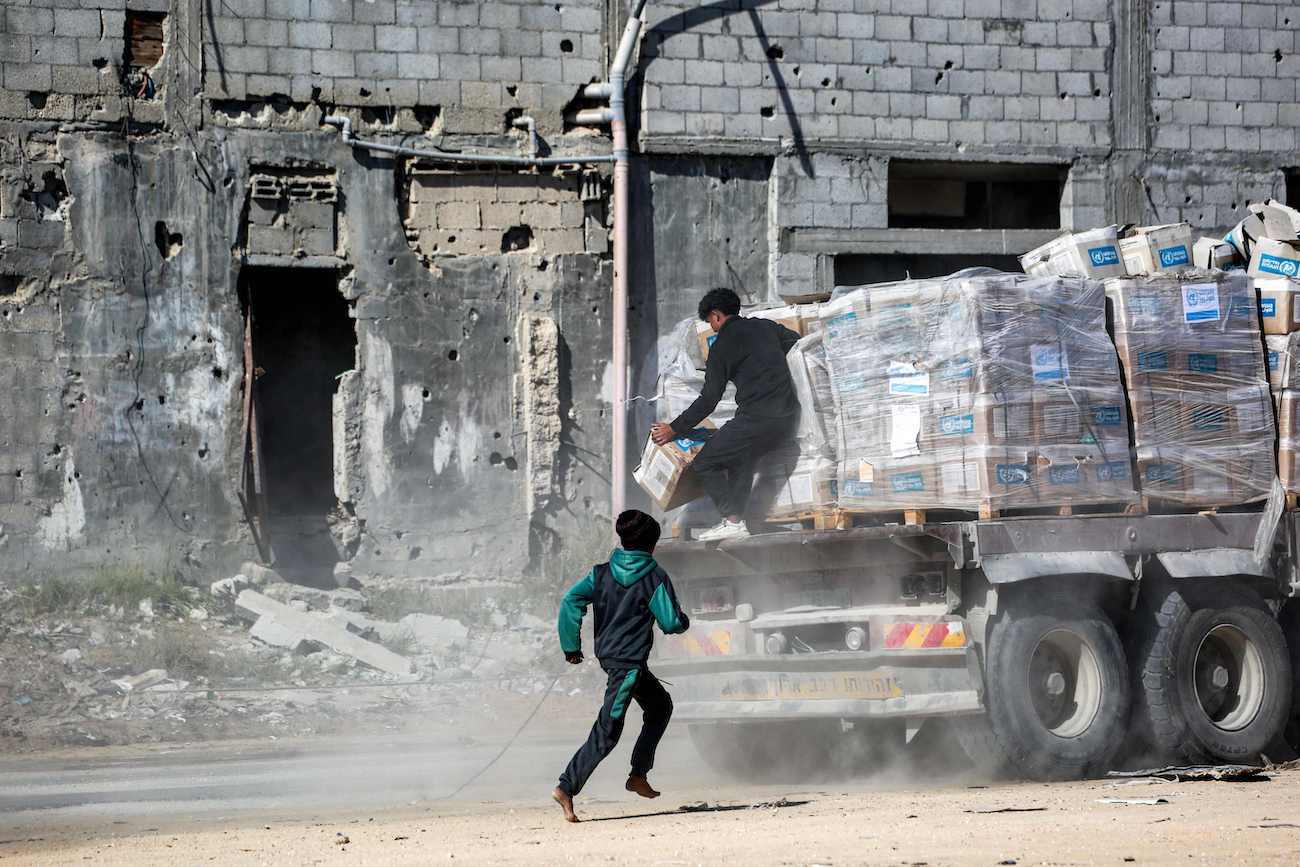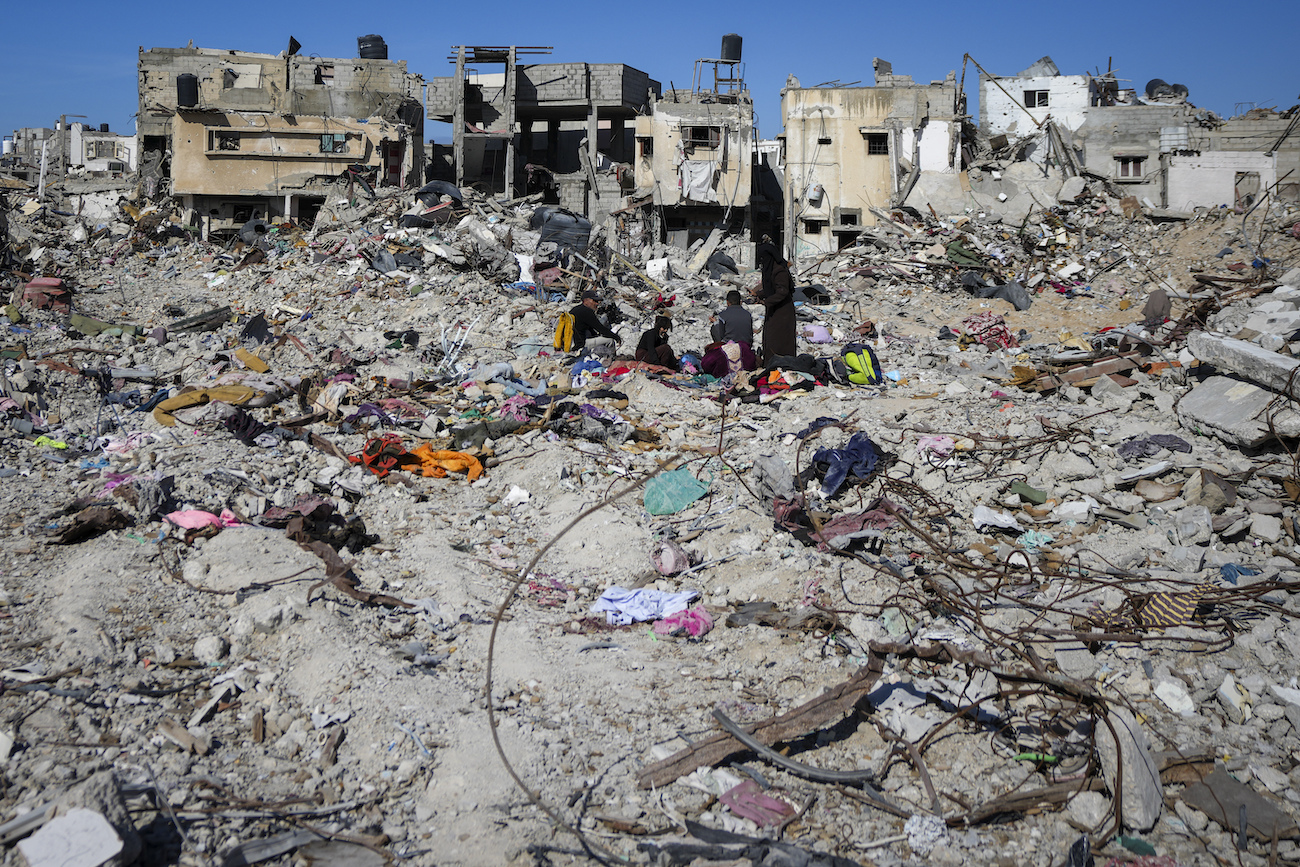DUBAI, United Arab Emirates: Edward B. Johnson, who as a Central Intelligence Agency officer traveled into Iran with a colleague to rescue six American diplomats who fled the 1979 US Embassy takeover in Tehran, has died, the CIA confirmed on Monday. He was 81.
Johnson’s identity for decades had been hidden from the public, with him known only by the pseudonym “Julio” after fellow CIA officer Antonio “Tony” Mendez published a book recounting the operation. The 2012 Academy Award-winning film “Argo,” directed by and starring Ben Affleck, didn’t include the second man on the team.
Yet a painting at the CIA’s headquarters in Langley, Virginia, offered a faceless acknowledgment of Johnson’s existence. And in 2023, the CIA itself revealed Johnson’s identity in a podcast highlighting the agency’s work to free the diplomats hiding at the Canadian ambassador’s residence in Tehran.
“Working with the six — these are rookies,” Johnson recounted in an interview aired by the podcast. “They were people who were not trained to lie to authorities. They weren’t trained to be clandestine, elusive.”
Johnson died Aug. 27 in his sleep in Virginia after suffering from pneumonia, the CIA told The Associated Press on Monday.
“Ed’s legacy will continue to inspire those who walk the halls of Langley for generations to come,” the agency said in a public statement.
His family in a statement honored him as having “a name that whispered through the corridors of intelligence” through his work.
“He was, at once, the ordinary man next door — husband, father, grandfather, brother, uncle and friend — and an extraordinary agent of the state,” they said.
Many specifics about Johnson’s professional life as a spy remain vague, as much of what is known about him publicly comes from the CIA podcast first identifying him, called “The Langley Files.” Johnson, who went by Ed, described coming to the CIA after serving as an infantryman in the US Army. He studied French in university, picked up Spanish from growing up with Cuban and Puerto Rican friends and later learned Arabic after teaching English in Saudi Arabia.
He traveled through Egypt and Jordan and studied at the Sorbonne university before being hired by the CIA. He met his wife, Aileen, while in Paris, his family said.
“It was after after having gotten the on-the-ground experience in the Middle East and the educational experience and the language into play ... that I was considered to be a good candidate,” Johnson said.
Johnson served in the CIA’s Office of Technical Service overseas at the time of the hostage crisis. It began when Islamist students came over the fence at the sprawling US Embassy compound in downtown Tehran on Nov. 4, 1979. While initially planned to be a sit-in like a previous storming, it soon became a 444-day hostage crisis.
Six US Embassy employees, however, had slipped away amid the chaos. They ended up in the home of Canadian Ambassador Ken Taylor. Several plans came and went before US President Jimmy Carter agreed to what became known as the “Canadian Caper” — posing the officials as part of a Canadian film crew scouting locations for a fake, knock-off “Star Wars” film called “Argo.”
Armed with Canadian passports, Mendez pretended to be a Canadian while Johnson was “an associate producer representing our production company’s ostensible South American backers,” Mendez later recounted in an internal CIA document. He described Johnson as having “considerable exfiltration experience” during the Cold War with the Soviet Union, without elaborating.
Landing in Tehran on Jan. 25, 1980, the men end up using a local map to try and find the Canadian Embassy. They ended up at the Swedish Embassy — just across the street from the American Embassy, patrolled by armed students. A local embassy guard didn’t understand them, as neither man spoke Iran’s Farsi language — a conscious decision made the CIA not to raise suspicions as their Farsi-language experts might be recognized.
Then one of the student revolutionaries walked over. As a conversation progressed, the men realized the student spoke German after studying abroad for a year. Johnson ended up getting written directions from the student, who even hailed a taxi for them and refused a tip.
“I have to thank the Iranians for being the beacon who got us to the right place,” Johnson said.
The men ended up with the six Americans, providing them scripts, props, fake histories and training on how to pretend to be a film crew. Johnson and Mendez worked on final preparations on the passports and exit slips, the scene represented in the painting at CIA headquarters.
“The biggest thing I think we did was to was to convince them that you can, you can do it — as simple as that,” Johnson remembered.
On Jan. 28, 1980, the CIA officers and the six Americans flew safely out of Tehran on a Swissair flight. Both Johnson and Mendez received the CIA’s Intelligence Star, its second-highest award for valor, for the operation. He retired from the CIA in 1995 and worked as a contractor while exploring a passion in photography, his family said.
“Even as the world celebrated his heroism, he remained a ghost, a figure shrouded in anonymity,” his family said. “For decades, his identity was a closely guarded secret. It was only in the twilight of his life that he finally emerged from the shadows, a legend in his own right.”
Johnson was born July 29, 1943, in Brooklyn. He is survived by his wife, five children, nine grandchildren, other family and friends, his loved ones said.
In the decades since the “Argo” rescue, there’s been a broader reckoning over the CIA’s actions in Iran, particularly the 1953 CIA-led coup that overthrew the country’s prime minister to cement the rule of Shah Mohammad Reza Pahlavi. That action lit the fuse for the 1979 Islamic Revolution and the more than four decades of enmity between Tehran and Washington that followed.
The two-part podcast revealing Johnson’s identity acknowledged that, with a CIA historian calling the 1953 coup “one of the exceptions” to the agency’s efforts to bolster democracy worldwide.






























